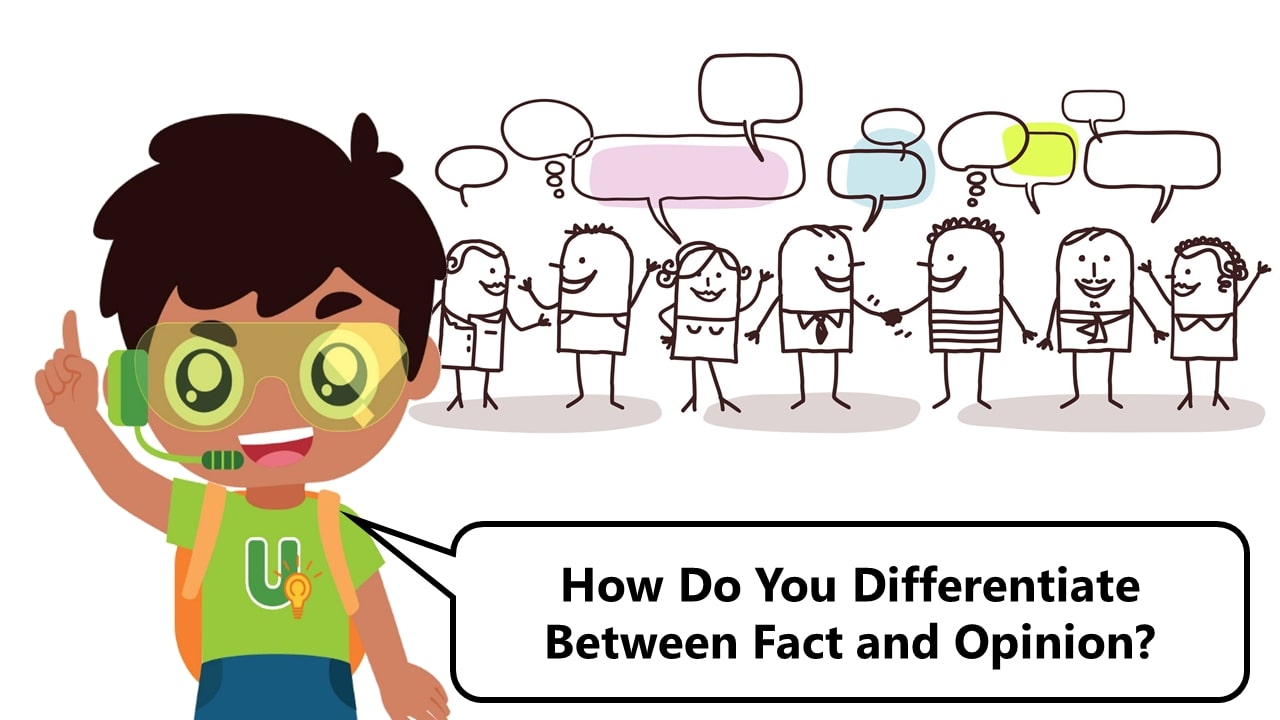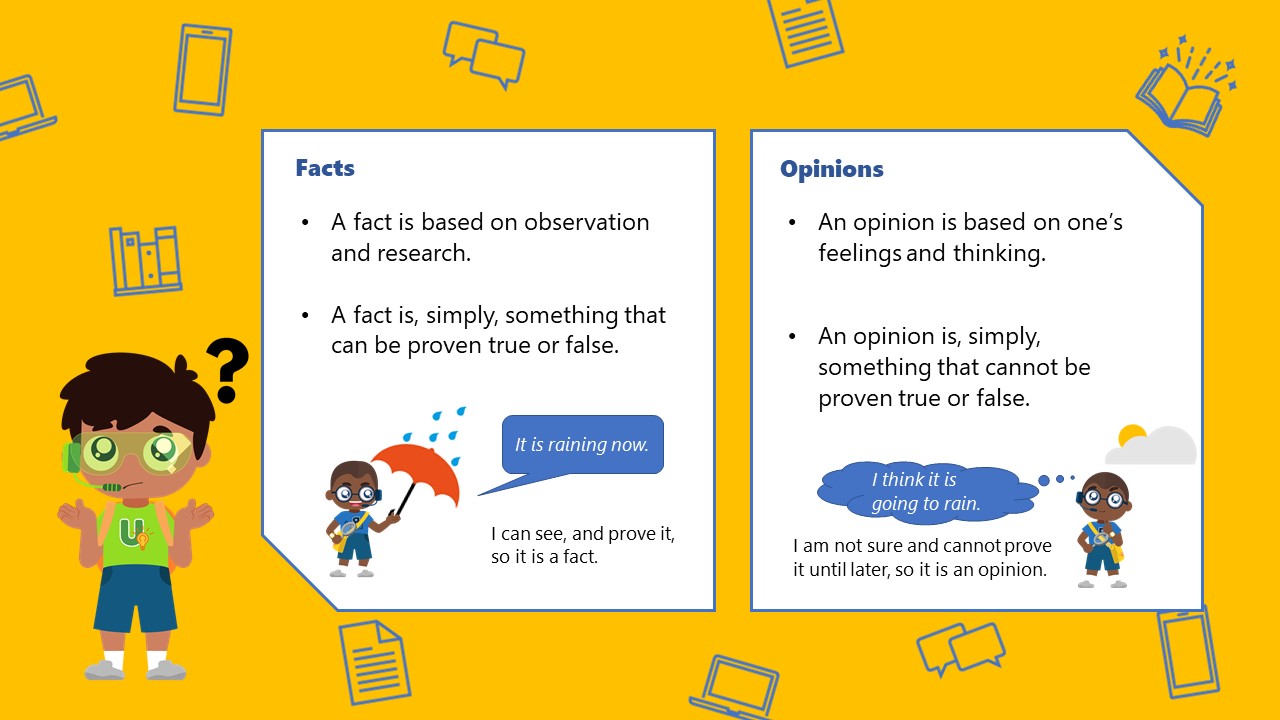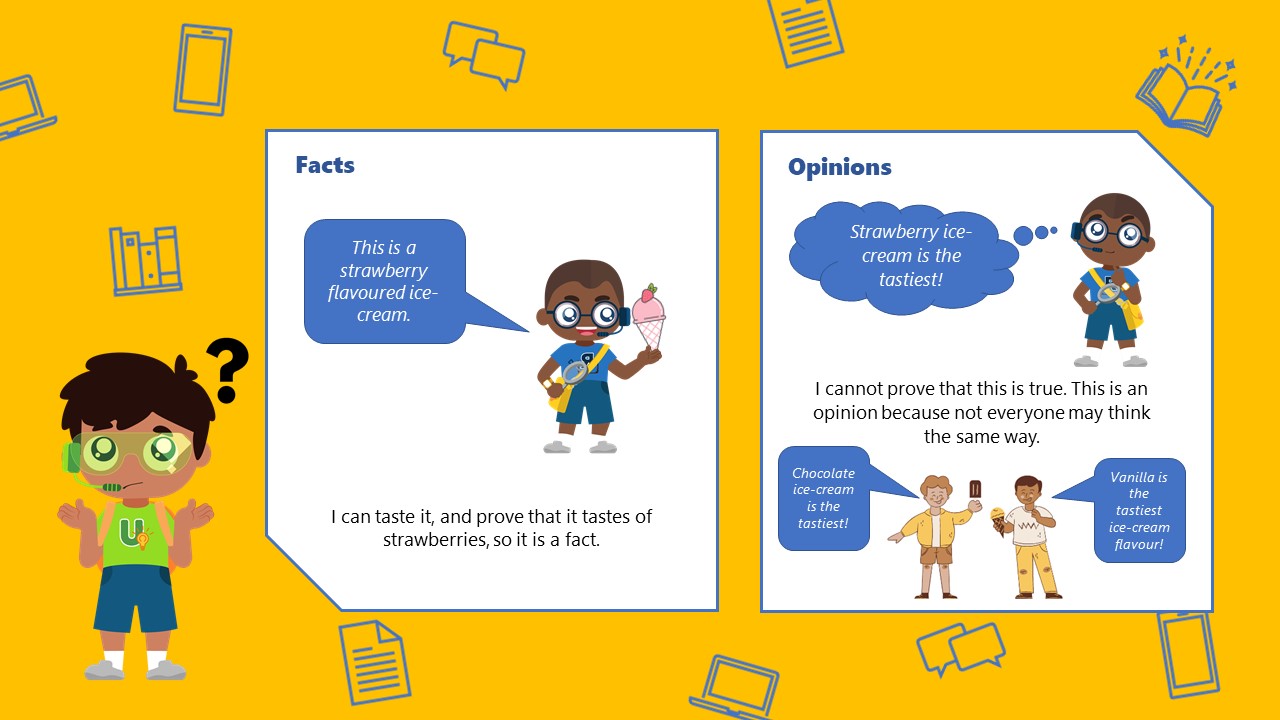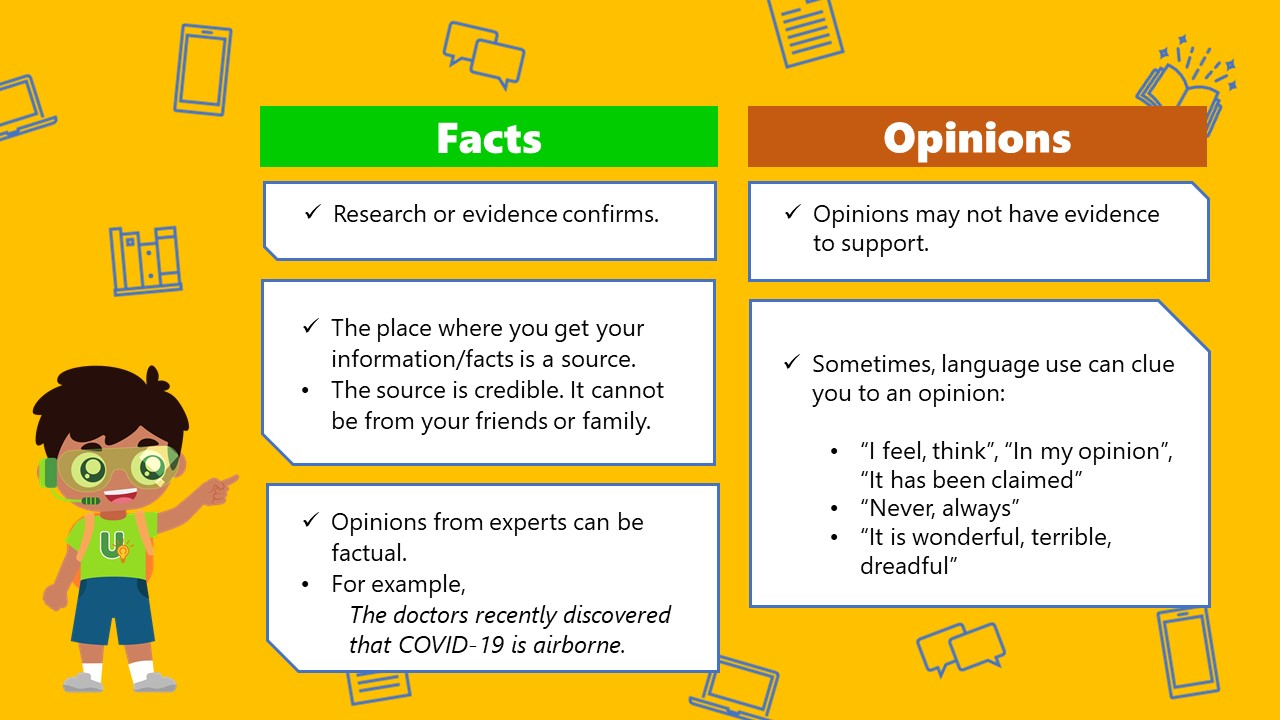How Do You Differentiate Between Fact and Opinion?
How Do You Differentiate Between Fact and Opinion?

Hi, I’m Understanding Upin, part of the SUREvivors team!
By now you should have learnt about sources of information and how to check their reliability with my friend Source-Finding Sarah.
When conducting research for your homework or project work, you’ll often come across sources of information that present facts or opinions. I’ll be helping you to find out more about what they are and how to differentiate between them!
What are facts and opinions?
How do we differentiate facts and opinions?
I hope that you now know more about facts and opinions! When doing research, try to look for facts instead of opinions as they are supported by evidence.
Now, test out what you have learnt in this quiz HERE.




